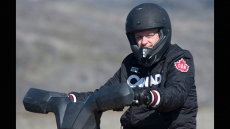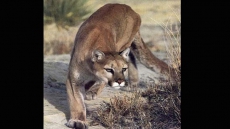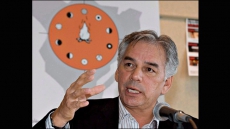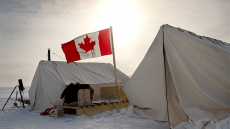A consensus appears to be building among Canada's premiers and native leaders for devising a new way of taking action on the issue of murdered and missing aboriginal women.
Prior to a meeting Wednesday in Charlottetown between the premiers and five aboriginal leaders, Saskatchewan Premier Brad Wall said it was clear the federal government isn't interested in a public inquiry, a proposal the provinces endorsed a year ago.
Wall said he still supports the idea, but he's now pushing for a proposal that would see some kind of federal-provincial forum established.
"I don't think anyone wants another ponderous, interminable process where we don't have action and results," Wall said.
"I think what we can achieve as premiers and as a country, if the federal government would engage, is an event and an exchange of best practices that's informed by action."
Wall said the provinces have already set up something similar for health-care innovation.
He said the forum should look at the justice system, First Nations education and also focus on the responsibilities of aboriginal groups.
The premier said there have been 29 studies and reports on aboriginal issues since 1996 that have produced more than 500 recommendations and the forum could look at what action has been taken on those ideas.
The Assembly of First Nations and the Native Women's Association of Canada have already indicated their support for such a plan.
The premiers of Ontario and P.E.I. had little to say about the roundtable proposal before the meeting, but both Kathleen Wynne and Robert Ghiz made it clear that an inquiry of some sort was needed — and federal involvement was a must.
"I think that it's important to have a national discussion about this," Wynne said. "Having a public inquiry is a good way of getting at some of the issues that are of huge concern to all of us."
Ghiz said Prime Minister Stephen Harper is obligated under the Constitution to respond.
"As premiers, we're stepping up to the plate by meeting with our five (native) leaders," he said. "No one should be sitting backing and allowing (the federal government) to abdicate their responsibility."
Ghiz went further, saying there were only two ways to secure a federal inquiry.
"If ... the prime minister is not going to change his mind, the only other way to get (an inquiry) is to have a new prime minister."
The demand for federal action comes less than two weeks after the body of a 15-year-old aboriginal girl was found in the Red River in Winnipeg.
Native leaders have said Tina Fontaine's death, considered a homicide by police, has highlighted the need for an inquiry.
In May, the RCMP released a study of 1,181 cases involving aboriginal women since 1980. The study found aboriginal women made up 4.3 per cent of the Canadian population, but accounted for 16 per cent of female homicides and 11.3 per cent of missing women.
The federal government has rejected calls for an inquiry, saying it has taken action to deal with the problem, including setting up a national DNA missing person's index and introducing 30 justice and safety initiatives aimed at helping native women.
Harper has said most cases like Fontaine's should be handled by the police, adding that it would be a mistake to consider the crime part of a "sociological phenomenon.''
In Ottawa, Opposition Leader Tom Mulcair said Wednesday an NDP government would launch a full public inquiry within 100 days of taking office after consulting with women and First Nations about its parameters.
Mulcair said only an inquiry can get at the systemic problems reflected in the murder rate among aboriginal women.
The federal Liberals have also promised to establish an inquiry.






